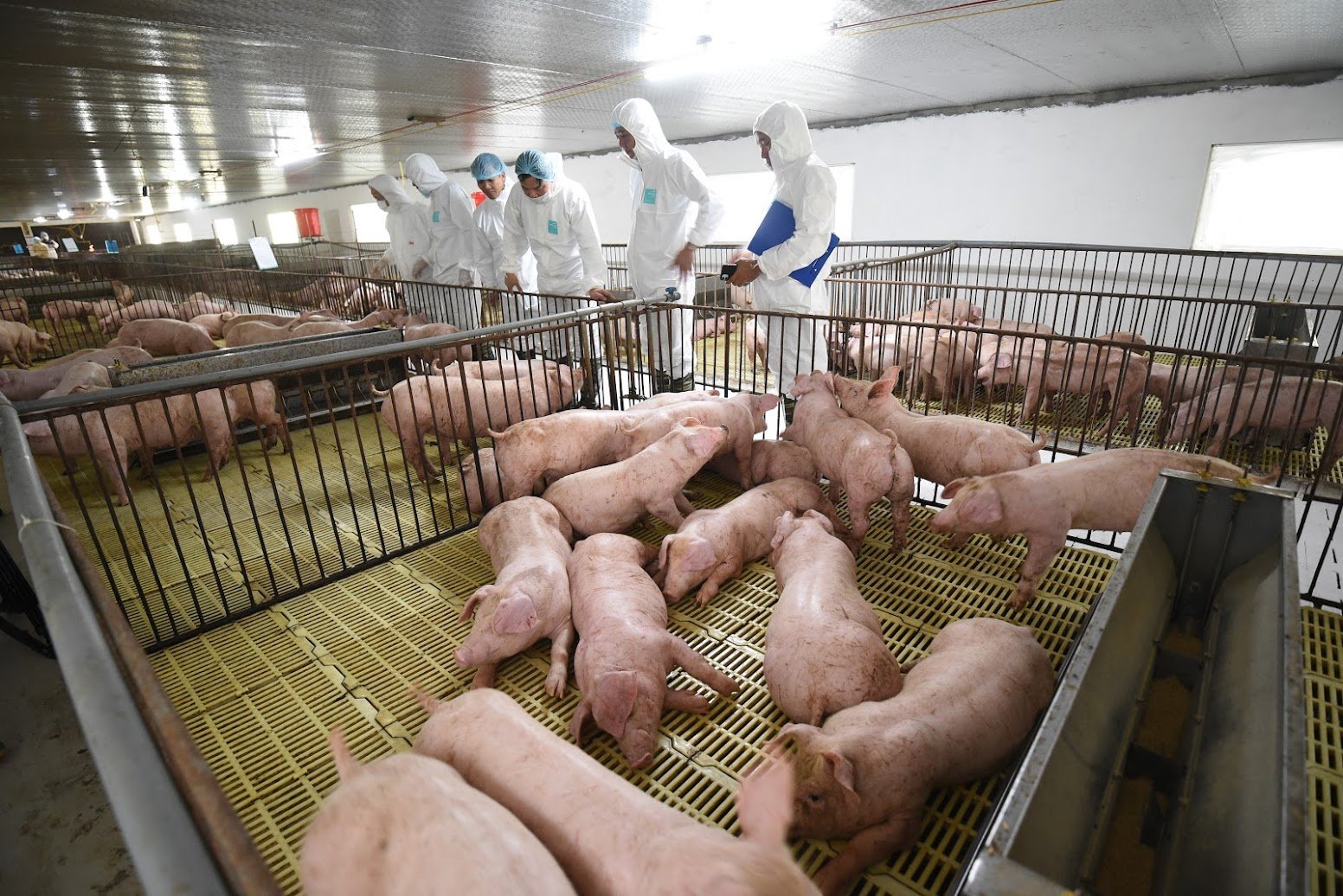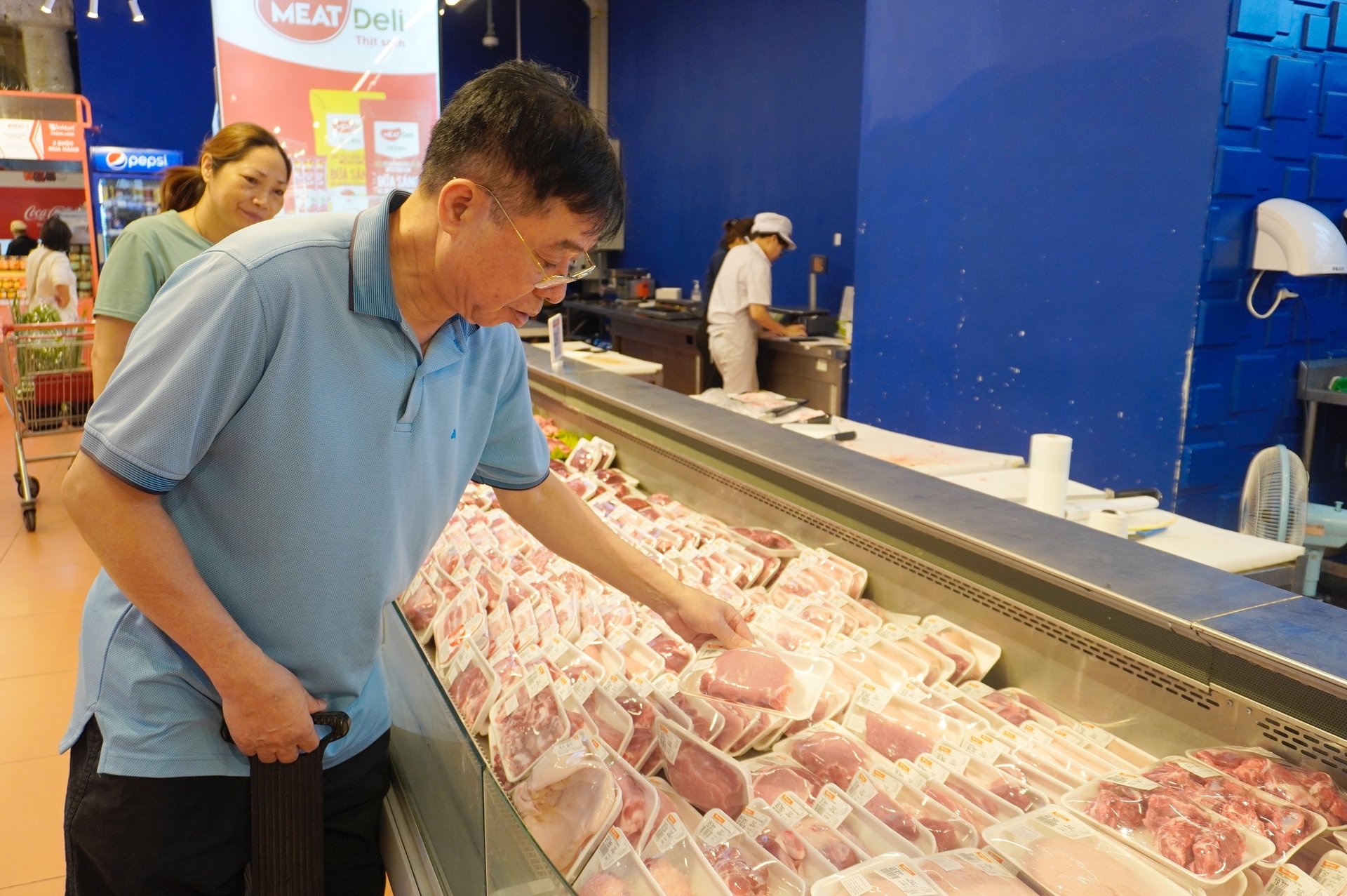December 23, 2025 | 13:21 GMT +7
December 23, 2025 | 13:21 GMT +7
Hotline: 0913.378.918
December 23, 2025 | 13:21 GMT +7
Hotline: 0913.378.918
The Department of Livestock Production and Animal Health (which was part of the Ministry of Agriculture and Development, now the Ministry of Agriculture and Environment) leads a new project called "Reducing the risk of human-animal interactions through disease control and biosecurity initiatives in pig farming."
The implementation receives approval from the Ministry of Agriculture and Development, as stated in Decision No. 899/QD-BNN-HTQT, dated February 25, 2025. The project is funded by the Food and Agriculture Organization of the United Nations (FAO) and will run from 2025 to 2026 in Ha Tinh province and Ba Ria—Vung Tau province (now Ho Chi Minh City). Vietnam has received and directly managed up to USD 140,000 in total aid.

The ultimate goal of the project is to apply the Progressive Management Pathway (PMP) to at least two small and medium-sized pig farming chains. Photo: Hong Tham.
The overall objective of the project is to enhance management capacity and improve the effectiveness of surveillance systems and biosecurity assurance measures to prevent and minimize the impact of zoonotic disease risks, emerging infectious diseases, antimicrobial resistance and other biological threats affecting animal and human health in livestock value chains, thus contributing to sustainable livestock development.
The project’s prime focus is to apply the Progressive Management Pathway (PMP) as a guideline for biosecurity improvement in at least two small and medium-sized pig farming chains and then devise effective solutions to limit the spread of diseases. The project team will construct a document for biosecurity plan development and a guide to evaluating and monitoring the implementation of the plan for pig farms under the subject group.
The project also opens up the initial establishment of a database system for tracing the origin of pig farms and pig products, strengthening the capacity of management and policy tools, and improving the control system and measures to ensure biosecurity in livestock value chains at the central and local levels.
The project implementation process flexible and harmoniously integrates the overall goals and management objectives of the livestock industry. Two main activities relate to major industry issues, including biosecurity assurance in livestock farming and traceability of livestock facilities and products.
Regarding the idea of designing a traceability system for livestock facilities and products, this system will be managed and operated directly on the National Database System on Livestock. All livestock production and business facilities and livestock products at all stages of production are issued codes in accordance with the GS1 standard.
Information fields are managed and declared according to the provisions of the livestock law. State management agencies can easily update livestock statistics in real time (in the form of authorized documents, tables, charts, maps, etc.) to serve authorized work.
As for the traceability system of livestock facilities and products, the code issuance process is carried out in a transparent and controlled manner. After the facility owner registers an account and declares complete information, the competent authority will check and confirm the information within seven working days. If correct, the system will then automatically issue a code within three days. If incomplete or incorrect, the system will respond with a notification for correction and refuse to issue a code until the data is fixed as required.

With the dual goal of ensuring biosecurity and enhancing traceability in livestock farms, the project contributes to protecting public health. Photo: Hong Tham.
The project expects to achieve success in the application of the PMP approach to at least two small and medium-scale pig farming value chains and the establishment of a database system for tracing the origin of livestock farms and products.
To be more specific, livestock farm codes and livestock product codes for tracing purposes will be piloted for farms or livestock production and trading facilities belonging to at least two small and medium-sized pig farming chains selected to participate in the project. Technical reports and documents are developed during the project implementation process.
With the dual goal of ensuring biosecurity and enhancing traceability, the project not only contributes to protecting public health but also creates a foundation for the development of the pig farming industry in a modern and sustainable direction.
The expected results from the pilot model will be an important basis for replication nationwide, gradually improving management capacity, proactively preventing epidemics and integrating more deeply into the global supply chain.
Translated by Samuel Pham

(VAN) As Viet Nam enters a new era, the national agricultural sector must proactively adapt to global trends to transform current challenges into strategic development opportunities.
/2025/12/18/5046-3-154320_307.jpg)
(VAN) Granting planting area codes is a solution that helps Lao Cai manage forests effectively while also laying a data foundation to support the development of the carbon credit market in the future.
/2025/12/16/3554-1-192458_116.jpg)
(VAN) Minister Tran Duc Thang held a working session with the Viet Nam Seaculture Association to discuss solutions for developing marine farming in a methodical, industrial, sustainable, and well-organized manner.

(VAN) Trading forest carbon credits is to reduce greenhouse gas emissions while creating sustainable livelihoods for local communities.

(VAN) Expanding the area of forests with FSC certification creates a foundation for elevating the economic value of forests, promoting sustainable management, and offering opportunities to participate in the carbon credit market.

(VAN) MAE and GIZ organized the conference to strengthening capacity and readiness for EUDR implementation in Vietnam.

(VAN) When women, men, children, and people with disabilities all have the opportunity to maximize their potential, the economy will grow, and the country will prosper.